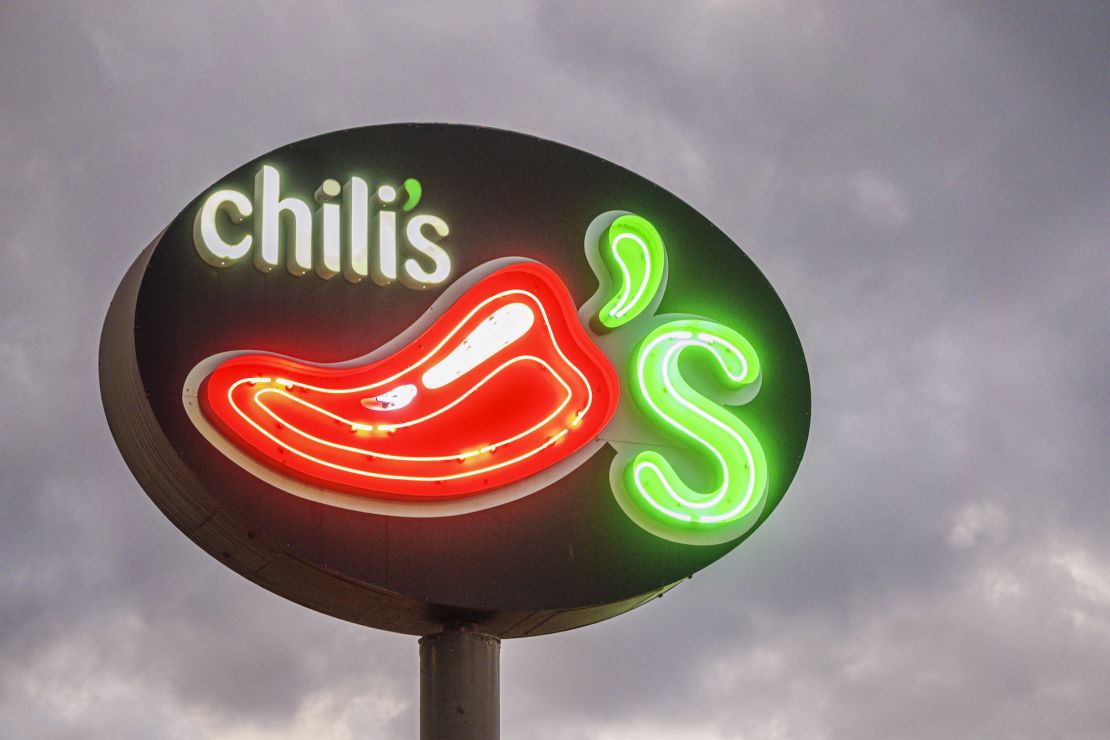McDonald’s and other fast food chains are charging more. So much so that you may want to consider going for a slightly slower burger. Or at least, that’s what Applebee’s wants you to think about.
“You can get our burger for $9.99,” John Peyton, CEO of Applebee’s parent company Dine Brands, told CNN in an interview. With that in mind, “why would you take a $10 burger … that you can eat in a bag out of your car?”
If Peyton’s sales pitch resonates with customers, it could help convince diners to eat at sit-down restaurants, something they might otherwise see as an indulgence.
For a while, restaurant customers were trading down — swapping out expensive meals for cheaper ones, but still dining out. Now, some are responding to higher menu prices by trading out entirely: Instead of opting for cheaper restaurants or meals, they’re eating more at home and spending less when they do go out.
That means that restaurants have to battle it out for these cost-conscious consumers. And now, it’s not just burger chain against burger chain.
Because fast food joints have been hiking up prices in recent years, dine-in spots like Applebee’s can run promotions that end up costing about the same as a fast food lunch — giving them a chance to try to steal those customers away.
The overlap offers “a new opportunity,” according to Peyton. Lunch at McDonald’s now costs about the same as lunch at Applebee’s, where you can sit at a table and have your meal delivered by a server. Pointing that out is a new way to bid for customers.
Applebee’s, which has seen sales slump as lower-income customers pull back, is offering deals and hoping the prices will speak for themselves. Chili’s, on the other hand, is making the comparison more explicit.
For them, and the fast food chains they’re now competing against, the stakes are high.
A smaller pie
Years of price hikes have contributed to declining traffic, pushing restaurants to fight over fewer customers, according to Henkes.
“It’s a smaller pie today than it was a year ago,” he said. “You’re competing for a share of a smaller market. And so it is more competitive.”
Fast food prices, in particular, have shot up. “Fast food has gotten really expensive,” Henkes said. “Certainly, relative to where it was 12 to 18 months ago, and also in comparison to casual dining sit-down restaurants right now.”
In the 12 months through March, not adjusting for seasonal swings, prices at fast food and fast casual restaurants went up 5%, according to data from the Bureau of Labor Statistics. In that period full-service menu prices went up 3.2%, and grocery prices ticked up 1.2%.
A few years ago, McDonald’s said that it could raise prices without losing too many customers. But now, it’s struggling with lower-income customers.
CEO Chris Kempczinski said during a February analyst call that “the battle ground is certainly with that low-income consumer.” The following month, CFO Ian Borden conceded during another analyst call that “it’s a challenging consumer environment.”
The chain is working on a $5 menu to win over those customers, according to Bloomberg.
Things aren’t much better over at Applebee’s.
Sales at US Applebee’s locations open at least a year slumped 4.6% in the first quarter. In that period, customers who earn $50,000 a year or less visited less often, and spent less when they did, Peyton said, adding that the demographic makes up about 45% of Applebee’s customers.
“For several quarters… we’ve been asking ourselves, when will we see the impact of inflation, and the economy in general, and interest rates, on on our guest,” he said. “We really began to see it in the first quarter.”
He added that “we think it’s going to be a fight for share of wallet and market share all year.”
Fast food as a foil
With fast food prices high, sit-down restaurants can make a case for themselves.
People have taken their fast food price grievances to social channels, some complaining about the price of McDonald’s burgers and hash browns. Chili’s has been paying attention.
“Our social media team has been watching the conversation that the consumer is frustrated by fast food prices,” said Kevin Hochman, president of Chili’s and CEO of its parent company, Brinker International, during an April analyst call. In response, Chili’s decided to run ads that “use fast food as a foil,” he said.

The chain said in an April press release that it was adding a new burger — which it described as having “twice the beef of a Big Mac and flavors fast food lovers will recognize” — to its ‘3 for me’ value menu. For $10.99, customers get the burger plus an app and a drink.
On X, Chili’s asked whether Chili’s is better than fast food, and promised rewards to those who said yes. Chili’s also ran video ads comparing its food favorably to fast food burgers.
But it might not be that easy. Getting people to go to Chili’s instead of McDonald’s may be a stretch, said David Henkes, a senior principal at Technomic, a food industry research and consulting firm.
One problem for chains like Chili’s and Applebee’s is that they’re not so much competing on price, as they are on time.
“People go to sit-down restaurants, generally speaking, for different occasions, than they go to fast food restaurants,” he noted. You might expect to spend an hour at a Chili’s or an Applebee’s, and breeze right through a McDonald’s.
Still, campaigns like Chili’s can help communicate to customers that these days its food is relatively cheap.
“Planting that seed that, ‘Hey, we’re a good value,’ I think is a good message to have,” Henkes said.
Fast food is expensive. Applebee’s and Chili’s are moving in - CNN
Read More
No comments:
Post a Comment